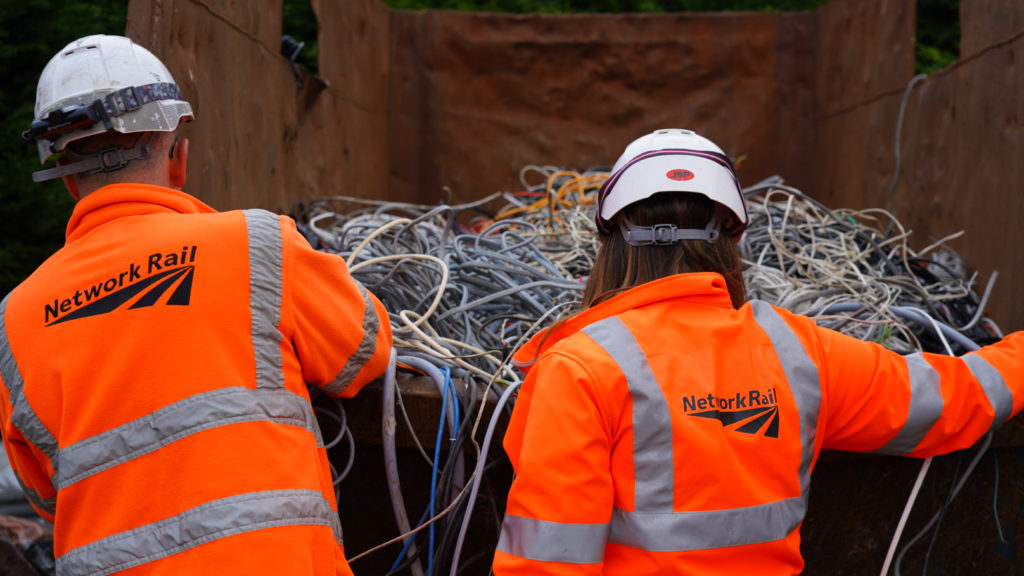As many delays to trains are caused by cable theft – signalling and power cables often contain copper – scrap yards across the West Midlands and Warwickshire have been visited by Network Rail and the British Transport Police to ensure dealers are not trading stolen metal.
In the two years to October 2020, there were 26 incidents of serious metal theft on the railway between London Euston and Carlisle. These caused 18,359 minutes of delay to passengers and cost the taxpayer an estimated £1.7 million (£1,725,619.33) in Network Rail’s North West & Central region alone.
In conjunction with the telecoms industry, surprise scrap dealer site visits have taken place in recent weeks to remind traders of their obligations under the Scrap Metal Dealers Act 2013. By law, dealers must ensure traded metal is legally sourced and that sellers’ details are recorded and kept as part of any sale.

Increasingly, organised criminal gangs are targeting metal used in infrastructure and exploiting high metal prices, but thieves are being warned that police have sophisticated ways to catch them – with metal marked with a variety of trackable tags.
Natalie Stretton, performance improvement specialist for railway crime at Network Rail, said: “Cable theft can cause huge problems for passengers at a very significant cost to our business – which is of course funded by the taxpayer.
“To stop the trade of illegal scrap metal, dealers must be vigilant if offered materials which could have been illegally obtained. Our ongoing visits to scrap metal yard allow us to ensure that dealers are trading safely and lawfully.
“Trespassing on the railway is incredibly dangerous, as well as illegal. Thieves are not just risking a criminal record when they come onto the railway to commit crimes, but risking their lives too.”
Superintendent Mark Cleland, British Transport Police national lead for metal crime, said: “We’re working with partners across the entire country and throughout the metals recycling industry to target those who we suspect of flouting the law or operating outside of their licence.
“By taking a multi-agency approach, we are maximising our ability to identify those who are attacking our national infrastructure, making it harder for them to sell stolen metal and gain from their activities.
“We’re warning would-be offenders that we will take action against them and anyone involved in the theft and trade of metal from the railway will be brought to justice.”

